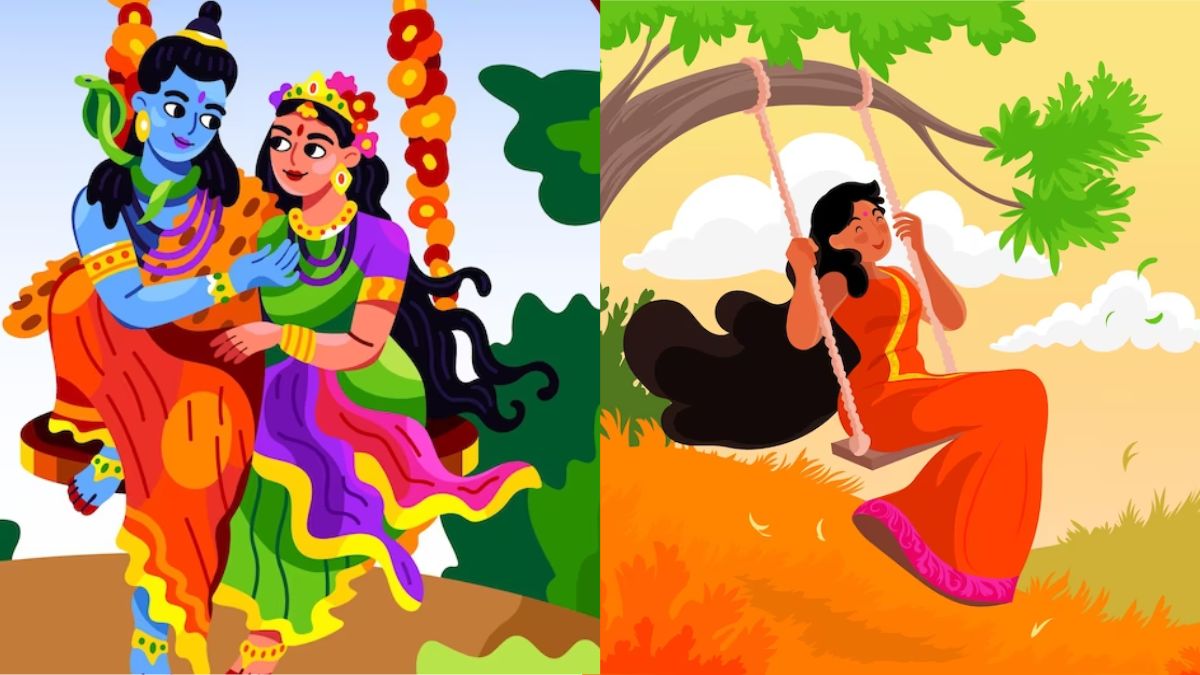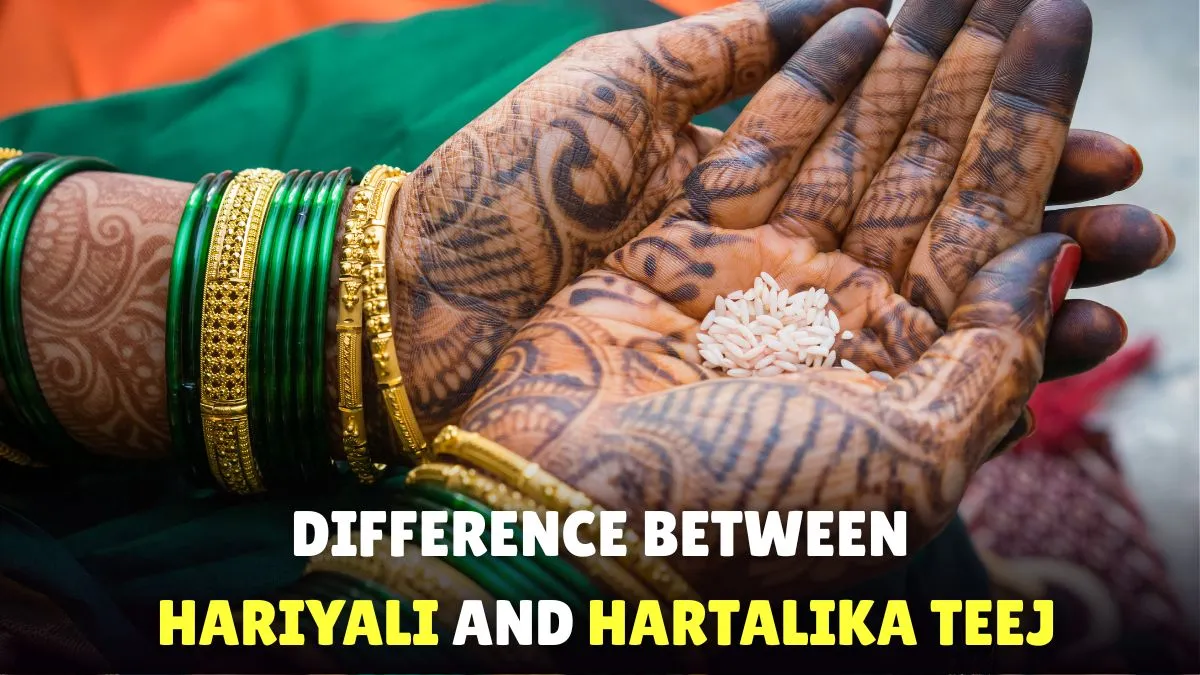- By Kashish Rai
- Fri, 25 Jul 2025 12:46 PM (IST)
- Source:JND
The Teej festival celebrated during the monsoon season or Shravan, falls on the third day after a new moon night, marking the onset of the rainy season. Although Teej is observed twice a year, each occasion has distinct names and significance in Hinduism. Many often confuse Hariyali Teej and Hartalika Teej, which are two separate celebrations with unique traditions and stories. Understanding the differences between these festivals can help appreciate their cultural richness and spiritual significance, allowing devotees to observe them with greater devotion and authenticity and connect with the essence of these joyous celebrations. Let's explore the differences between them below to gain a deeper understanding of each celebration.
Difference Between Hariyali Teej And Hartalika Teej
Hariyali Teej and Hartalika Teej are both spiritually significant festivals dedicated to the divine union of Lord Shiva and Goddess Parvati, yet they are celebrated with different sentiments and on distinct tithis. Hariyali Teej falls on the Tritiya (third day) of Shukla Paksha in the month of Shravan, just two days before Naga Panchami. This day marks the celebration of the marriage of Shiva and Parvati, which, according to legend, took place three days after the full moon. It is deeply connected to the monsoon season. 'Hariyali', meaning greenery, symbolises the Earth’s transformation after their sacred union.
Hartalika Teej, on the other hand, also falls on Shukla Paksha Tritiya, but in the Bhadrapada month and has a more introspective and devotional undertone. Its story revolves around Goddess Parvati’s unwavering determination and devotion to marry Lord Shiva. Her father, Himalaya, had promised her hand to Lord Vishnu, but unable to accept this, Parvati took help from a close friend who 'abducted' her, hence the name “Hartalika” derived from “Harat” (abduction) and “Aalika” (female friend). She retreated to the banks of the Ganga and performed rigorous penance. Moved by her dedication, Lord Shiva finally agreed to marry her.
While both Teej festivals honour Parvati's deep love and connection with Shiva, they differ in their tone and intention. On Hariyali Teej, the mood is festive where women dress in green, sing traditional songs, swing joyfully, and observe a Nirjal Vrat (waterless fast) to celebrate marital bliss. Hartalika Teej is more about devotion and resolve, where both married and unmarried women fast to either pray for their husbands’ well-being or to be blessed with a life partner as divine as Lord Shiva.
ALSO READ: Hariyali Teej 2025: Check Date, Timings, Shubh Muhurat, Significance And Rituals

Lord Shiva and Goddess Parvati's divine union is celebrated during Teej, a festival honouring their love and marital bliss, symbolising devotion, love, and the eternal bond between a husband and wife. (Image Source: Freepik)
Significance And Rituals Of Hariyali Teej And Hartalika Teej
Hariyali Teej: The word 'Hariyali' reflects the greenery and fertility of nature, believed to have flourished after the divine marriage of Lord Shiva and Goddess Parvati. The festival is especially significant for married women who pray for the well-being and longevity of their husbands. Rituals include wearing green sarees and bangles, adorning hands with mehendi, swinging on decorated swings, singing traditional Teej songs, and observing a Nirjal Vrat (fast without water) while worshipping Lord Shiva and Goddess Parvati with devotion.
ALSO READ: Hariyali Teej 2025: What Is Sindhara Or Sinjara Ritual? Here’s Everything You Should Know
Hartalika Teej: This festival is a powerful symbol of feminine strength, devotion and determination. Women, both married and unmarried, observe a Nirjal Vrat on this day, offering prayers to the divine couple for a harmonious married life or a righteous life partner, performing Shiva-Parvati puja with sacred items.
(Disclaimer: This content includes advice providing generic information only. It is in no way a substitute for qualified spiritual or astrological opinion. Always consult a specialist for more information before adopting any measures.)
